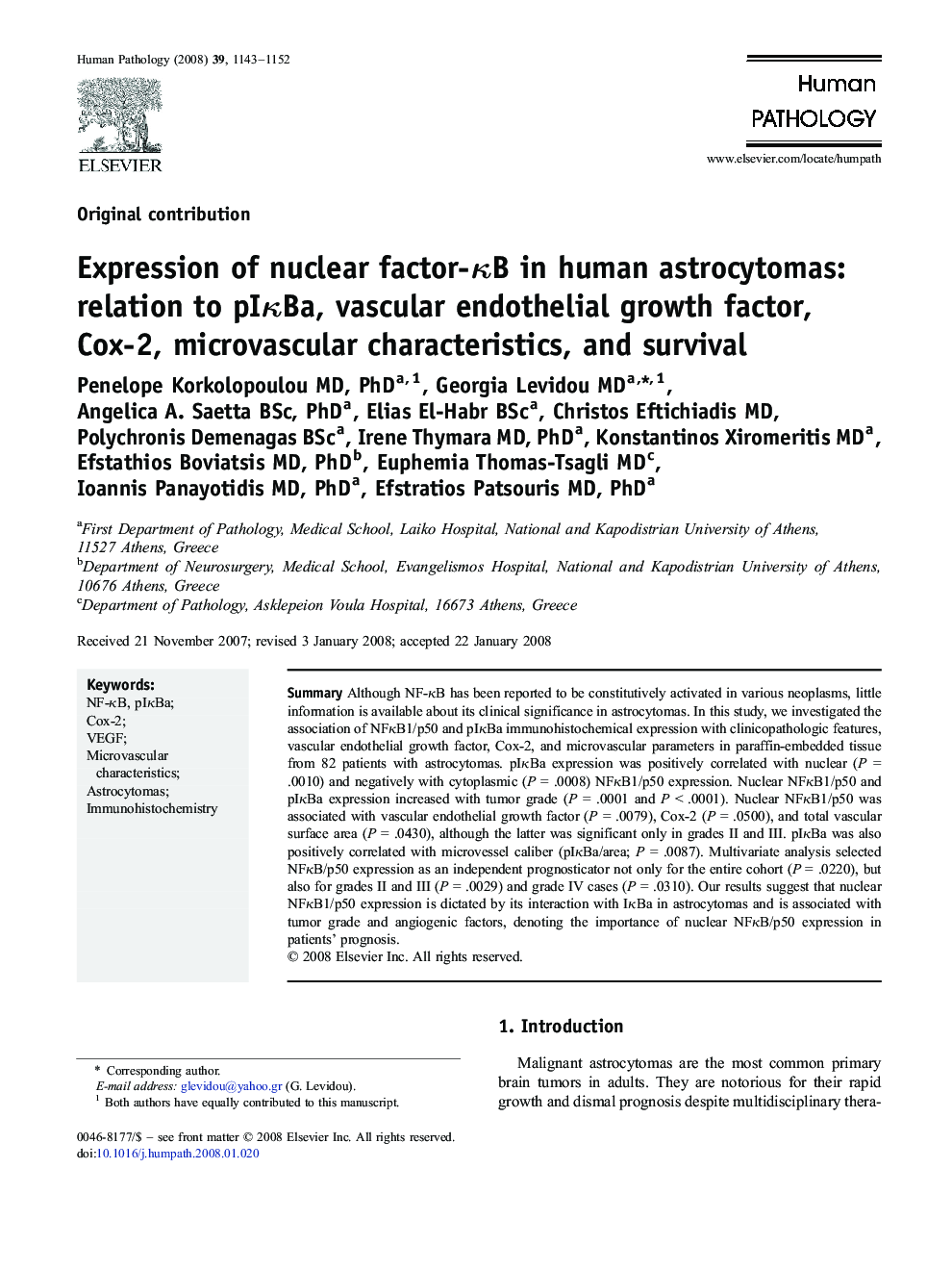| Article ID | Journal | Published Year | Pages | File Type |
|---|---|---|---|---|
| 4134547 | Human Pathology | 2008 | 10 Pages |
SummaryAlthough NF-κB has been reported to be constitutively activated in various neoplasms, little information is available about its clinical significance in astrocytomas. In this study, we investigated the association of NFκB1/p50 and pIκBa immunohistochemical expression with clinicopathologic features, vascular endothelial growth factor, Cox-2, and microvascular parameters in paraffin-embedded tissue from 82 patients with astrocytomas. pIκBa expression was positively correlated with nuclear (P = .0010) and negatively with cytoplasmic (P = .0008) NFκB1/p50 expression. Nuclear NFκB1/p50 and pIκBa expression increased with tumor grade (P = .0001 and P < .0001). Nuclear NFκB1/p50 was associated with vascular endothelial growth factor (P = .0079), Cox-2 (P = .0500), and total vascular surface area (P = .0430), although the latter was significant only in grades II and III. pIκBa was also positively correlated with microvessel caliber (pIκBa/area; P = .0087). Multivariate analysis selected NFκB/p50 expression as an independent prognosticator not only for the entire cohort (P = .0220), but also for grades II and III (P = .0029) and grade IV cases (P = .0310). Our results suggest that nuclear NFκB1/p50 expression is dictated by its interaction with IκBa in astrocytomas and is associated with tumor grade and angiogenic factors, denoting the importance of nuclear NFκB/p50 expression in patients' prognosis.
